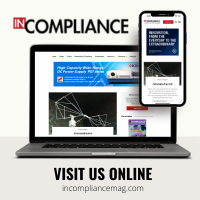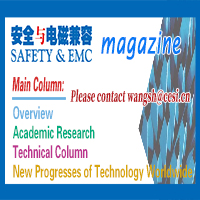Call for Submissions
The IEEE EMC Society is seeking original, unpublished papers covering all aspects of EMC and technologies that are affected by EMC.
Join us in Phoenix (AZ). Share your insight, ask questions, learn from the experts/innovators and see new products at the 2024 IEEE International Symposium on Electromagnetic Compatibility, Signal Integrity/Power Integrity. Your published paper will be seen by thousands in the EMC community and across the wide array of disciplines that look to the IEEE EMC Society for technical guidance. In addition, it will be uploaded to IEEE Xplore with the exposure and recognition that brings.
The Committee’s Proposed Special Topic Areas:
EMI/EMC Issues for Transportation Electrification, Semiconductor and Chip EMC, Packaging, Autonomous Vehicles, Charging and Wireless Charging, Intentional EMI and Cybersecurity, Applications of AI/ML to EMC and SIPI Problems.
Special Sessions are unique dedicated sessions which can be created by working with the Technical Committee. If interested, you should discuss this with one of the Technical Committees to act as the sponsor.
Abstract-Reviewed Papers are ways an author can share their work in addition to Traditional Papers. This allows Authors to present their work without the burden of writing a full manuscript. Abstract-Reviewed Papers require an extended abstract.
Poster Papers are an option for Authors wishing to informally present their work in an interactive environment.
Workshops & Tutorials are an option for authors covering a fundamental topic, a complex project, or a large dataset. Presentation proposals are submitted instead of a journal paper
Experiments & Demonstrations are for contributors who prefer to share their work as live experiments or demonstrations.
Paper Acceptance Procedures & Criteria
Paper acceptance will be based on the following criteria:
- Importance of Topic: Does it have direct significance to the EMC community?
- Technical Sophistication and Depth: Does it present information that is a significant contribution, advancement, application, or refinement of the state of the art? Does it expose the reader to a higher knowledge level than currently available from other sources? Is it clear that the work has been substantially completed or is the submission an interim progress report on a long-term project?
- Readability, Clarity, and Presentation: Is the value of the submission clearly defined? Is the material written in clear and concise English with topics presented in an organized and logical manner?
- Novelty and Originality: Does it propose a new, unique and unpublished concept or expand on an existing premise from a unique point of view? Does it present new information on an EMC/SIPI issue that is still in the developmental stage?
| CALL FOR SUBMISSION KEY DATES |
|---|
| DECEMBER 13, 2023: Proposal for Special Sessions Submission Deadline |
| JANUARY 8, 2024: Traditional and Special Session Paper Submission Deadline Extended to January 16th at Midnight EST! |
| FEBRUARY 19, 2024: Notification of Acceptance/Rejection for Traditional and Special Session Papers |
| MARCH 4, 2024: Abstract-Reviewed Papers, Workshops & Tutorial, Experiments & Demonstrations Proposals Submission Deadline |
| MARCH 18, 2024: Revised Traditional and Special Session Paper Submission Deadline |
| APRIL 12, 2024: Notification of Acceptance/Rejection for Workshops & Tutorials, Experiments & Demonstrations |
| APRIL 19, 2024: Notification of Acceptance/Rejection for Traditional, Abstract-Reviewed and Special Session Papers |
Student Paper Contest
Graduate and undergraduate authors are eligible for the Best Student Paper contest. The student must be the primary author and should indicate that they wish to be considered for the contest when submitting the preliminary manuscript. Each student’s professor will be asked to certify that the paper is primarily the work of the student. It is expected that the co-authors of student papers will be limited to those who provided DIRECT contributions to the paper; in general cases the limit is no more than six authors total, including the student.











